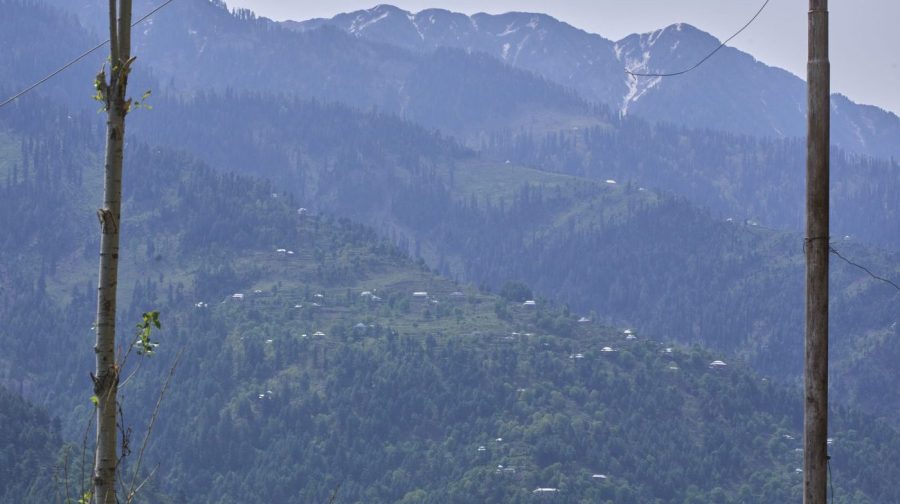
Islamabad (AP) -Pakistan test fired a ballistic rocket on Saturday, while tension with India has thrown over the past month’s deadly attack on tourists in the disputed Kashmir region.
The Pakistani army said the surface-to-surface rack has a range of 450 kilometers (about 280 miles). There was no immediate comments on the launch of India, which blamed Pakistan for the April 22 rifle in the Pahalgam resort, a charge that Pakistan denies.
Pakistan’s Army said the launch of the Abdali weapon system is aimed at ensuring the ‘operational readiness of troops and the ratification of important technical parameters’, including the rocket navigation system and improved manageability functions.
Pakistan President Asif Ali Zardari and Prime Minister Shehbaz Sharif congratulated those behind the successful test. Missiles are not fired with India to the border area; They are normally fired in the Arabic or the deserts of the Southwest Balochistan Province.
Syed Muhammad Ali, who is Saturday’s rocket, is named after a prominent Muslim conqueror of India, which underlines its symbolic meaning.
“The timing of this launch is critical in the current geopolitical context,” Ali told The Associated Press. He said the test was intended as a strategic signal for India after it threatened to suspend an important treaty for the part of water.
The Navy of India said on April 27 that its vessels successfully fired off-fire to “re-evaluate and demonstrate the readiness of platforms, systems and crew for the offensive strike at a long distance.”
Ashok Malik, a former policy adviser in the Foreign Ministry, said there was anger across the country after the gun attack. The 26 victims come from 13 different states.
“Internationally, there is tremendous sympathy for India and little patience with Pakistan,” says Malik. “I don’t believe anyone in India wants a full -fledged war. Nevertheless, there is domestic pressure and diplomatic space for a sharp, targeted and limited response. ‘
The ongoing ‘muscle bend’ through both countries’ troops reflects the tense mood and is also visible in the ‘incessant hostilities’ on the control line, the de facto boundary that divides Kashmir, he said.
Kashmir is divided between India and Pakistan and is claimed in its entirety.
They fought two of their three wars over the beautiful Himalayan region and their tires were formed by conflict, aggressive diplomacy and mutual suspicion, mostly because of their competitive demands on Kashmir.
The latest flare -up has led the two countries to expel each other’s diplomats and nationals, as well as the closure of the airspace.
On Saturday, India suspended the exchange of all mail from Pakistan through air and surface routes and slapped an immediate ban on the direct and indirect import of all goods from its neighbor.
India also banned Pakistani flagged ships from entering its ports and banned the Indian flag vessels from visiting Pakistani ports.
India’s army said on Saturday that Pakistani troops fired at positions across the border for the ninth consecutive night. The statement mentions the shooting unproven and said that Indian troops “responded immediately and proportionally.”
Pakistan did not confirm the exchange of fire at the control line.
The incident could not be verified independently. In the past, each side has accused the other of border screen.
Passions ran high among the Pakistanians who traveled to the Wagah intersection with India to see the famous flag-lending ceremony.
The spectacle involves the rangers of Pakistan and India’s border safety force in a dramatic parade on either side of the intersection, with just a gate between them, their high kicks stretching skyward.
Shoaib-Ur-Rehman said that no other experience provoked such powerful feelings of patriotism from him and that he saw “extraordinary emotions” during Saturday’s ceremony.
Rehman voiced his opposition to a war with India, but said he would fight with Pakistan’s army if one broke out.
Sundas Batool wanted India to provide evidence of Pakistan’s involvement in the Pahalgam attack.
“The other side must have seen our energy, our spirit,” says Batool, referring to the crowd on the other side of the border. “My message to India is: We’re ready for anything.”
___
Associated Press writers Aijaz Hussain, Rajesh Roy and Babar Dogar contributed to this report by Srinigar, India; New -delhi, and Wagah, Pakistan.
